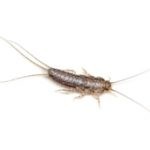How to Get Rid of Foxes in Your Garden?

Image by: Forest and Kim Stars / License: CC BY SA 2.0
Urban foxes are a growing concern for many homeowners across the UK. These nocturnal visitors often leave behind mess, damage gardens, and pose risks to pets and small livestock. In this comprehensive guide, we explain how to get rid of foxes from your garden permanently, using humane, legal, and highly effective methods.
Foxes are beautiful and smart creatures as long as they have not found their way into your garden. From unexpected piles of fox poo to fox holes and dens, there may be many issues that would make you wonder about what deter foxes and how to get rid of foxes in the garden.
How Do I Get Rid of Foxes Permanently?
To get rid of foxes permanently from your garden, a combination of physical barriers, deterrents, and behavioural modification is essential:
- Install fox-proof fencing: Erect fences at least 6ft tall with a buried base or angled outward at the top to stop climbing and digging.
- Use motion-activated sprinklers: Sudden water sprays are a highly effective fox deterrent.
- Deploy ultrasonic fox repellers: Devices that emit high-frequency sound waves can repel foxes without harm.
- Remove food sources: Secure bins with tight lids, avoid feeding pets outdoors, and clean up fallen fruit or birdseed.
- Apply strong-smelling deterrents: Use sprays made from human urine scent or commercial chemical fox repellents.
Foxes are persistent, so long-term success often comes from combining these strategies.
What Attracts Foxes in Your Garden?
A fox can eat anything, from small animals and birds to food scraps and pet food. Throwing food scraps on your lawn or having multiple bird feeders may attract more wildlife than you’ve intended. And if you are keeping chickens or have one or more rabbits in your home, it is best to make their housing as secure and as impenetrable as you can.
Other reasons that foxes may have taken a liking to your garden may be:
- You have opened patches of dirt for your flower beds. Cubs may practice their digging skills there or foxes may feed on the worms. Place the chicken wire on top to avoid this.
- You buried a deceased pet. Foxes usually bury their food finds to return to them at a later point, so burying your pet may seem like a gift to them. Place heavy slabs on top for a few months until the smell is indistinguishable and stops attracting foxes.
- You use bone-based plant food. The smell may attract foxes, so it is best to switch to a non-animal-based fertilizer.
- You have a pond, a fountain or an uncovered irrigation system. Foxes need a steady supply of water and will come back again and again to your garden if they can easily get a sip. Make it difficult for foxes to get to your pond by surrounding it with plants and pots or other items and cover or slightly bury your irrigation pipes.
If you do not do any of the above and your garden is unkept and overgrown, then that is what will attract foxes. They prefer to stay hidden and if your garden offers many hiding spots, foxes will move in.
How Do You Know if You Have a Fox Hole?
A fox hole, or entrance to a den, is typically found in quiet, sheltered spots like under sheds or in thick shrubbery. Signs of a fox hole include:
- A 20-30cm round opening
- Signs of regular movement (worn grass or paths)
- Fresh digging and loose soil
- Fox droppings and strong musky odour nearby
- Remains of prey or food scraps
Fox holes often appear in the early spring or late winter when vixens are preparing to give birth.
How Can You Tell a Fox Den?
A fox den, known as an “earth”, will usually show these signs:
- Multiple entrances (sometimes up to 3 or 4)
- Scattered debris like feathers, bones, or litter
- Pungent smell from droppings or urine
- Visible signs of fox fur at entrances
- Increased activity at dusk or dawn
If you spot a den, avoid blocking it immediately; ensure no foxes (especially cubs) are trapped inside.
Do Foxes Come Back to the Same Den Every Year?
Yes, foxes are creatures of habit and often return to the same den annually, especially if it has remained undisturbed. They may pass the den to their offspring or re-use it for shelter in winter. Blocking access without removing attractants usually leads to re-occupation or relocation within your garden.
For permanent fox deterrence:
- Destroy or block the den post-season
- Apply strong fox deterrents to the area
- Clear vegetation and reduce cover
Knowing how to get rid of foxes in your garden involves understanding their habits and consistently applying humane deterrents. Focus on prevention, eliminate food sources, and use a combination of repellents to protect your space. Whether you’re dealing with fox holes, daily visits, or recurring dens, a proactive strategy will safeguard your garden from long-term intrusion.
What Repels Foxes?
To know how to stop foxes from coming into your garden, you have to be prepared to not only be careful not to welcome them. Sometimes, your garden can seem a great place for a fox, regardless of whether there’s easily accessible food, water and shelter.
While it is not illegal to hunt or kill a fox, unfortunately, in the UK, it is against the law to cause unnecessary suffering to this and many other animal creatures under the Animal Welfare Act 2006. There’s a fine of up to £20,000 for offenders.
So, if you discover that you’ve got a fox in your garden, you better contact a pest control specialist to deal with the situation. But if you consider it disturbing and unethical to harm a fox, there are other ways to make your garden an undesirable place by learning what deters foxes in the first place, such as smells, fear and natural predators.
What Smells Do Foxes Hate?
Foxes have a keen sense of smell and are easily repelled by strong odours. The most effective smells to deter foxes include:
- Citrus peels (especially orange and lemon)
- White vinegar
- Garlic and chilli mixtures
- Commercial fox repellent granules or sprays
Scatter these substances around your garden, especially near known entry points and den sites, to discourage fox activity.
What are Foxes Afraid of?
Foxes are naturally cautious and easily scared by unfamiliar stimuli. They are most afraid of:
- Sudden movements and noises (motion sensors, garden alarms)
- Predator scents (commercial sprays mimic larger predators)
- Human presence (frequent garden activity can deter them)
- Dogs (foxes tend to avoid areas with active canine presence)
- Using a motion-activated fox deterrent system with sound, light, or water can create an environment they perceive as unsafe.
Foxes are afraid of people, loud noises, flashing lights and sudden movements. If you come across a fox, you can yell at it or throw something in its direction to scare them away. There are also ultrasonic devices, available for sale that emit a high-pitch noise that only animals can hear. It would keep away any foxes but have in mind that other animals will hear it, too, and it may cause them great discomfort. A less invasive way to keep away foxes is to leave a light on in your garden. Foxes enjoy the comfort of darkness and will avoid any well-lit areas.
What are Foxes’ Predators?
Adult foxes are extremely adaptable and have no natural predators in Britain, except for humans in a way. Fox cubs may fall prey to badgers and golden eagles in the UK and several other predator species in Europe.
Learn more about Red Foxes
Can I Stop Foxes Digging up my Lawn?
A fox usually digs very shallow holes in your lawn when looking for earthworms or other types of small insects for food. This is generally a seasonal problem, as worms are usually out and about during the wet parts of the spring and autumn season. If the damage is not too great, you can let it pass on its own.
If you find deeper holes, dug around your property, then foxes may be attracted by the smell of buried food or animal remains. Check out our post on how to dispose of a dead animal. This may not be coming from actual animal remains if you have recently used a bone-based fertilizer. The smell from it confuses the fox, sending it on a scavenger hunt for something that is not there. If that is your case, you can either wait patiently for the rain to wash the product away or just double on the watering yourself.
Is It Okay to Have Foxes in Your Garden?
While foxes are part of Britain’s urban wildlife, having them in your garden is not ideal. Risks include:
- Digging up lawns and flower beds
- Defecating on turf or decking
- Killing small pets like rabbits or guinea pigs
- Spreading parasites such as fleas, ticks, or mange
If left undeterred, foxes can become comfortable and even return year after year to the same den site.
Can I Stop Foxes From Fouling in my Garden?
Foxes use fouling to mark their territory and usually leave their piles in the most conspicuous places for other foxes and unfortunately, for you to see. Foxes coming into adulthood, trying to establish their territory, are prone to excessive fouling. In some cases, your garden may be the chosen spot for more than one fox. In that case, until one fox prevails and wins the territory, you may suffer from coming across excessive amounts of fox excreta.
Unfortunately, there is not a way to stop foxes from ever fouling, as this is in their nature. The only solution would be to take the above-mentioned steps to stop the fox or foxes from coming to or through your garden altogether.
Conclusion
If you have unwanted visitors in the face of a fox or two and they are wreaking havoc in your carefully curated garden, it may be best for you to take steps to keep them away. Even though foxes are not a danger to you, your family or your pets they do carry some diseases you may not want around. If you have taken all of the steps above and you are still looking for ways how to deter foxes it may be best to seek professional fox removal services to help you deal with your garden foxes.
Consider that we give information on possible ways to get rid of foxes in the garden. However, we cannot guarantee that all of the above approaches will work for you.











